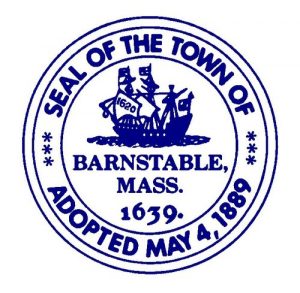 HYANNIS – Americans make more than 500,000 medication mistakes a year, according to a report in Consumer Reports magazine. The report goes on to say that at least 90,000 life-threatening or fatal events occur as a result of medical errors patients make at home.
HYANNIS – Americans make more than 500,000 medication mistakes a year, according to a report in Consumer Reports magazine. The report goes on to say that at least 90,000 life-threatening or fatal events occur as a result of medical errors patients make at home.
We asked James Mangan, director of Hospital and Ambulatory Pharmacy for Cape Cod Healthcare, about the most common medication errors he sees and how to prevent them.
Here are the top 10:
- Not having an accurate and complete list of all medications
This is the number one medication error, according to Mangan. Any medical personnel that you see needs to have an accurate list of your current medications with dosages. Patients should bring this list to every medical appointment. Patients with medical files on their refrigerator should also make sure that up-to-date information is in their file in case emergency personnel need access to it.
- Not disposing of discontinued medications
It’s common for people to save old medications even if they are no longer taking them. This can lead to confusion for patients, caregivers and emergency medical teams. Any medications that you are no longer taking should be properly disposed of.
“We have drop boxes at Cape Cod Hospital and Falmouth Hospital in our retail pharmacies,” Mangan said. “Some town police stations have them too.”
- Mixing prescription medications with over-the-counter medications or supplements
Many over-the-counter medications can interact with prescriptions or render them not as effective. Some of the seemingly harmless medications can interact with blood pressure or cholesterol medications. Plus, many of the more “natural” supplements are not in doctors’ database, so negative interactions won’t raise a red flag.
“One of our retail pharmacists can really help with that type of thing,” he said. “They are a great expert on those supplements/over-the-counter questions.”
- Not knowing all the ingredients in all-in-one cold or sinus medications
“A mistake with cold medication is not realizing what’s in the cold medication, like not realizing that that an all-in-one tablet may have Tylenol and you also take additional Tylenol,” Mangan said. “It’s important to understand and know what you are taking in an all-in-one cold and sinus medication. Brand to brand there might be variations. One might have ibuprofen in it where the other would have acetaminophen in it.”
One example of a dangerous interaction is if you are on a blood thinning medication like warfarin (Coumadin). Non-steroidal anti-inflammatory drugs (NSAIDs) can increase the risk of serious bleeding, especially ibuprofen. Another example is that the vasoconstrictor in a lot of cold and sinus medications can raise blood pressure, so they should not be taken by someone on a blood pressure medication.
- Missing doses and then doubling up
“There are general rules of thumb, but the person that misses a dose of medication should reach out to their pharmacist,” Mangan said. “It depends on the medication and how long it has been, but a pharmacist will almost never tell you to double up.”
Sometimes pharmacists will advise you to take your regular dose now and then take tomorrow’s dose a little later in the day. Other times, they will tell you to skip it and get back on your regular schedule tomorrow.
- Not knowing dangerous food interactions
Grapefruit juice is one of the more common foods that cause medication interactions, so pharmacists typically recommend avoiding all grapefruit products with certain drugs.
“It can affect the liver enzymes that metabolize the medication,” he said. “The drug can build up and cause toxic levels in certain medications.”
Another precaution is mixing bananas and other fruits and vegetables that are high in potassium with ACE inhibitors. It could lead to potassium levels that are too high and lead to an irregular heartbeat. Those taking blood thinners like warfarin need to avoid green vegetables like spinach, broccoli, brussel sprouts, cabbage and kale. All of those vegetables contain a lot of vitamin K, which can reduce the medications’ ability to thin the blood. In people with heart disease, it could also trigger a heart attack or stroke.
- Splitting extended-release medications:
Some medications can be safely split in half. A good guide is whether the pill has a little line on it for accurate splitting, but you should always ask a pharmacist if it is safe just to be sure.
“Some extended-release medications are not scored and, if you try to split them, it could cause the entire contents of the tablet to be released at once,” Mangan said.
- Storing medications in the bathroom
Since most built-in medicine cabinets are located in bathrooms behind a mirror, this tip is counter-intuitive and causes many people to make this mistake. Warm, moist environments affect the potency of medication over time, so this is especially important if you get larger supplies like 90 days at a time, which many people do to save money.
- Incorrectly measuring liquid medications
Another very common mistake is for people to use a teaspoon from their silverware drawer to measure liquids. When Mangan was in pharmacy school, he learned first-hand just how inaccurate this can be. Each student in his class was asked to bring a teaspoon from home and measure it with a syringe for accuracy.
“I don’t believe that a single member of my class actually had an accurate teaspoon,” he said.
- Not reading the medication pamphlet or the stickers on the side of the bottle
Any dangerous interactions are listed on the additional stickers on the side of medicine bottles. All medications also come with a pamphlet informing you of possible side effects and interactions. For safety’s sake, always read the whole pamphlet and ask questions.
Pharmacists always ask people if they have any questions when they pick up their prescription, but 99.9 percent of the time people automatically say no, according to Mangan. It’s a good idea to ask if there are any special precautions or things to look for with each new medication you take.
“The common theme to a lot of these mistakes is the best way to avoid them is really to engage with your pharmacist,” he said. “Even if it’s a mail order, picking up a phone and speaking with someone is a good idea. People should engage with their pharmacist because they have a wealth of information and they are more than happy to help.”
























